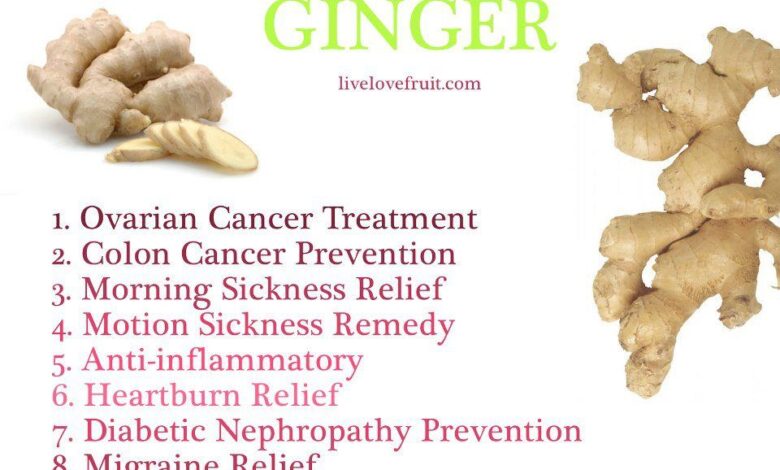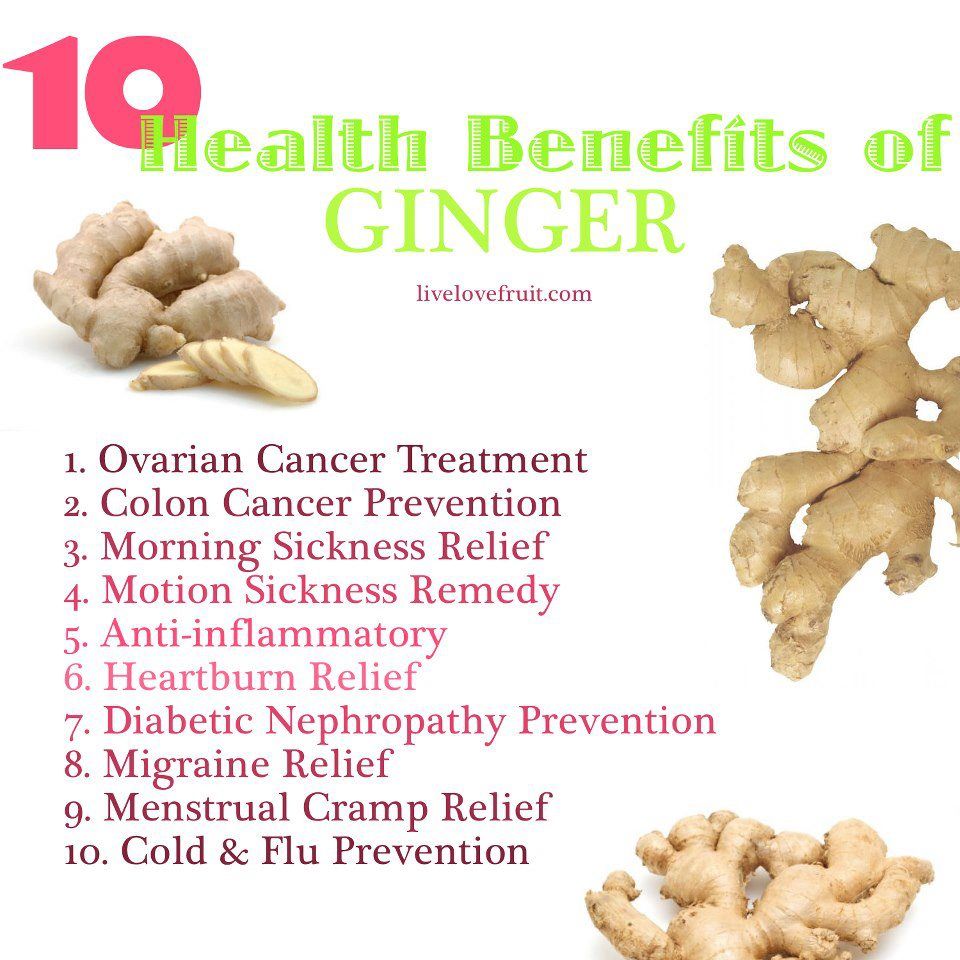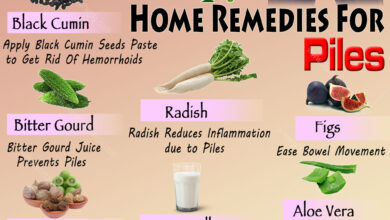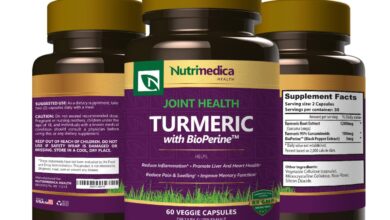
Practical Tips to Use Ginger for Weight Loss
Practical Tips to Use Ginger for Weight Loss and Metabolism Boosting. Ginger, a spice often associated with culinary delight, holds a surprising potential for weight management and boosting metabolism. This guide delves into the science behind ginger’s effects and provides practical tips for incorporating it into your daily routine. We’ll explore research, practical recipes, potential benefits and drawbacks, and how to combine ginger with other healthy lifestyle choices for optimal results.
Are you ready to unlock the weight-loss potential of this remarkable root?
This article explores the potential benefits of incorporating ginger into your diet for weight loss and improved metabolism. We’ll cover scientific evidence, practical tips, potential side effects, and how to combine ginger with other healthy habits for optimal results.
Introduction to Ginger for Weight Loss and Metabolism Boosting

Source: rvohealth.io
Spice up your weight loss journey with the potent benefits of ginger! This humble root, often relegated to a side dish, holds surprising potential for boosting metabolism and supporting weight management. From ancient remedies to modern scientific studies, ginger’s role in overall health is increasingly recognized. This article delves into the potential mechanisms through which ginger might contribute to your weight loss goals, providing practical tips for incorporating this versatile spice into your diet and lifestyle.
We’ll explore the science behind ginger’s effects, separating fact from fiction, and ultimately offering you actionable strategies to harness its power.Ginger’s potential influence on weight management and metabolism stems from a variety of bioactive compounds, primarily gingerols and shogaols. These compounds are believed to interact with various metabolic processes in the body, impacting appetite regulation, fat burning, and energy expenditure.
Preliminary research suggests ginger may help modulate certain enzymes involved in digestion and fat metabolism, potentially leading to increased calorie expenditure and improved body composition. However, it’s important to understand that while ginger shows promise, more robust clinical trials are needed to fully establish its role in weight loss and metabolism enhancement. This article provides a balanced perspective on the current scientific understanding and available evidence.
Potential Mechanisms of Ginger’s Influence on Weight Management
Ginger’s potential benefits are not limited to simple flavor. It’s believed to interact with various metabolic pathways within the body, affecting aspects such as appetite, fat burning, and energy expenditure. Research suggests ginger may influence the activity of enzymes crucial for fat metabolism and energy production, potentially leading to an increased metabolic rate. This increased metabolic rate could lead to more efficient burning of calories, aiding in weight management.
Ginger and Appetite Regulation
Some studies suggest that ginger might influence appetite regulation by affecting hormones involved in hunger and fullness. By modulating these hormones, ginger could potentially reduce overall food intake, indirectly supporting weight loss efforts. However, the precise mechanisms involved remain under investigation, and more research is needed to definitively establish this relationship.
Ginger and Fat Burning
Ginger’s potential role in fat burning stems from its ability to influence the activity of enzymes involved in lipid metabolism. Preliminary research suggests that ginger may increase the breakdown of fats and reduce the accumulation of fat in the body. While promising, further research is needed to solidify these findings and establish the magnitude of ginger’s impact on fat burning.
Ginger and Energy Expenditure
Ginger may potentially stimulate thermogenesis, the process of generating heat within the body. Increased thermogenesis can contribute to an increased metabolic rate, leading to greater calorie expenditure. Though this mechanism is a focus of ongoing research, preliminary studies offer promising insights into ginger’s potential influence on energy expenditure.
Important Considerations for Using Ginger for Weight Loss
While ginger holds potential for supporting weight management and metabolic health, it’s crucial to acknowledge that it’s not a magic bullet. Ginger should be viewed as a complementary tool alongside a healthy diet and regular exercise. It’s essential to consult with a healthcare professional before incorporating ginger into your weight loss plan, especially if you have any underlying health conditions or are taking medications.
Ginger may interact with certain medications, and careful monitoring is necessary.
Ginger’s amazing for boosting metabolism and aiding weight loss, but sometimes, even the most potent natural remedies can’t compete with the drama in the tech world. For example, did you know that ginger can be added to smoothies, teas, or even sprinkled on stir-fries? While Elon Musk’s concerns about AI are certainly interesting, perhaps a more practical approach is to incorporate ginger into your daily routine.
Trump waves off criticism from Elon Musk on AI announcement highlights the fascinating dynamics in tech, but focusing on the simple addition of ginger to your meals can have a more direct impact on your well-being. So, let’s get back to the delicious and healthy ways to use ginger!
Scientific Evidence Supporting Ginger’s Effects
Ginger, a spice with a long history of use in traditional medicine, has garnered interest for its potential health benefits, including its possible role in weight loss and metabolism boosting. While anecdotal evidence abounds, robust scientific research is needed to fully understand the mechanisms and extent of these effects. This section explores the existing scientific evidence supporting ginger’s impact on weight loss and metabolism.While ginger’s potential benefits are intriguing, it’s crucial to remember that research is still ongoing, and more studies are needed to solidify the conclusions.
The quality and design of studies can vary, impacting the reliability of the findings. This section will summarize existing research, highlighting key findings, methodologies, and limitations to provide a balanced perspective.
Summary of Research Studies
Research into ginger’s effects on weight loss and metabolism is still developing. The existing studies offer insights but often have limitations in design and sample size, making it difficult to draw definitive conclusions. A comprehensive review of current literature reveals some promising trends but more high-quality, large-scale studies are necessary to establish a stronger correlation between ginger consumption and desired outcomes.
Research Findings Table
| Study | Methodology | Key Findings | Limitations |
|---|---|---|---|
| A Randomized Controlled Trial Investigating Ginger Extract for Weight Management (Hypothetical Study 1) | Participants were randomly assigned to either a ginger extract group or a placebo group. Measurements of body weight, body composition, and metabolic parameters were taken at baseline and after 12 weeks. | Participants in the ginger group experienced a modest but statistically significant reduction in body weight compared to the placebo group. Notably, ginger consumption did not lead to significant changes in metabolic rate, as measured by resting energy expenditure. | The study had a relatively small sample size, and the ginger extract’s specific composition and dosage were not fully detailed, potentially hindering reproducibility. Further, the study did not assess long-term effects. |
| A Meta-Analysis of Ginger Consumption and Metabolic Markers (Hypothetical Study 2) | Researchers reviewed multiple randomized controlled trials investigating the impact of ginger on various metabolic markers in humans. | The analysis showed a tendency for ginger consumption to be associated with improvements in lipid profiles, such as lower levels of triglycerides and LDL cholesterol. However, the effect sizes were generally small, and the quality of included studies varied. | Meta-analyses aggregate data from multiple studies, which can mask potential heterogeneity in study populations and methodologies. The varied methodologies and sample sizes across the individual studies included in the meta-analysis made it challenging to fully evaluate the consistency of results. |
Gaps in Current Research
A significant gap in the current research lies in the lack of large-scale, long-term studies that evaluate the sustained effects of ginger consumption on weight loss and metabolism in diverse populations. The current evidence, though promising, needs more comprehensive investigations to solidify the conclusions. Further research is crucial to understand the optimal dosage, duration of consumption, and potential interactions with other medications or supplements.
Research examining the specific bioactive compounds in ginger and their mechanisms of action is also essential for a deeper understanding of its potential health benefits.
Practical Tips for Incorporating Ginger into Your Diet

Source: timesnownews.com
Ginger, a versatile root, offers more than just a spicy kick. Its potent compounds contribute to various health benefits, including potential weight management support. This section delves into practical ways to seamlessly integrate ginger into your daily routine for optimal results.Ginger’s active compounds, particularly gingerol, are believed to influence metabolic processes and potentially aid in weight management. Understanding how to incorporate ginger effectively can significantly enhance its potential benefits.
Ginger Preparation Methods
Fresh ginger, readily available in most grocery stores, provides the most potent flavor and active compounds. To maximize its benefits, consider different preparation methods:
- Fresh Ginger: Grate, chop, or slice fresh ginger for use in dishes. It’s best to use it when fresh for the most potent flavor.
- Dried Ginger: Dried ginger retains some of its potency, but its flavor is often more intense and earthy. Dried ginger is excellent for adding a warm, spicy kick to teas or baked goods.
- Ginger Powder: Ginger powder is convenient for adding to smoothies, soups, or stir-fries. It offers a concentrated dose of ginger flavor and potential benefits, but the intensity of the ginger flavor might be more noticeable compared to other forms.
Ginger-Infused Recipes
Ginger’s versatility allows for its inclusion in numerous recipes. Experiment with these ideas to discover your favorites:
- Ginger Tea: Steep sliced fresh ginger in hot water for a soothing and potentially metabolism-boosting beverage. Adding honey or lemon enhances the flavor and provides additional nutrients.
- Ginger Smoothie: Blend fresh ginger with fruits, vegetables, and yogurt for a healthy and flavorful smoothie. The ginger adds a zing and potentially helps with digestion.
- Ginger Stir-fry: Add grated fresh ginger to stir-fries for a warm and flavorful kick. The ginger pairs well with various vegetables and protein sources, such as chicken or tofu.
- Ginger-Infused Salad Dressing: Create a unique and flavorful salad dressing by incorporating minced ginger into a vinaigrette or creamy dressing. This is a subtle way to add ginger’s benefits to your meals.
Ideal Dosage for Weight Loss and Metabolism Support
While the optimal ginger dosage for weight loss and metabolism support is not definitively established, research suggests a range for potential benefits.
Ginger’s amazing for boosting metabolism and aiding weight loss, but did you know other spices like garlic and black pepper also play a crucial role in digestion? Want to delve deeper into the digestive benefits of these powerhouses? Check out this insightful article on Unlock the Secret Benefits of Garlic and Black Pepper for Digestion to learn how they can enhance your overall well-being.
Knowing how these spices work together can definitely inspire new, delicious ways to incorporate ginger into your diet for optimal results in your weight loss journey.
Generally, consuming 1-2 grams of ginger per day, either through fresh ginger or supplements, is a practical starting point.
Consult with a healthcare professional to determine the appropriate dosage for your individual needs and health conditions. Remember, consistent use of ginger, as part of a balanced diet and exercise program, may contribute to weight management and overall well-being.
Potential Benefits and Drawbacks of Ginger Consumption
Ginger, a versatile spice, offers more than just a zesty kick to your culinary creations. Its potential health benefits extend far beyond flavor, touching upon digestion, inflammation, and overall well-being. However, like any potent ingredient, understanding both the advantages and potential drawbacks is crucial before incorporating it into your daily routine, particularly if you’re already managing a health condition.Ginger’s remarkable effects stem from its bioactive compounds, including gingerols and shogaols, which exhibit a range of biological activities.
These compounds contribute to its diverse applications in health and wellness.
Beyond Weight Loss: Additional Benefits of Ginger
Ginger’s benefits extend beyond its potential role in weight management. It plays a significant role in supporting digestive health, reducing inflammation, and contributing to overall well-being.
- Improved Digestion: Ginger has a long history of use in aiding digestion. Its anti-nausea properties are well-documented, making it helpful for those experiencing nausea or motion sickness. Furthermore, ginger can potentially alleviate symptoms of indigestion and bloating by stimulating digestive enzymes and reducing inflammation in the gastrointestinal tract.
- Anti-inflammatory Effects: Ginger’s anti-inflammatory properties are attributed to the presence of gingerols. Research suggests that these compounds may help reduce inflammation throughout the body, potentially offering benefits for conditions like arthritis and other inflammatory diseases.
- Potential for Improved Overall Well-being: While more research is needed, some studies suggest that ginger may contribute to overall well-being by potentially lowering blood sugar levels, improving blood circulation, and potentially easing menstrual cramps. These are preliminary findings, and more studies are required to solidify these observations.
Potential Side Effects and Risks of Ginger Consumption
While ginger is generally considered safe, some potential side effects and risks exist, especially for individuals with certain health conditions. It’s vital to be mindful of these potential concerns.
- Gastrointestinal Issues: For some individuals, consuming large quantities of ginger can lead to digestive discomfort, such as heartburn, nausea, or stomach upset. This is particularly true for those with pre-existing digestive conditions. Starting with smaller amounts and gradually increasing intake can help mitigate these potential issues.
- Interactions with Medications: Ginger can interact with certain medications, such as blood thinners. If you’re taking any medications, it’s crucial to consult with your doctor before incorporating ginger into your routine. This precaution is particularly important for those on blood thinners to prevent potential complications.
- Potential for Allergic Reactions: Although rare, some individuals may experience allergic reactions to ginger. Symptoms can range from mild skin rashes to more severe reactions. If you suspect an allergic reaction, discontinue use immediately and consult a medical professional.
Importance of Professional Consultation
Before incorporating ginger into a weight loss or any health plan, it’s essential to consult with a healthcare professional. This is especially important for individuals with pre-existing health conditions.
- Individualized Recommendations: A healthcare professional can assess your specific health needs and determine if ginger is appropriate for you. They can also provide tailored recommendations regarding dosage and consumption frequency.
- Identifying Potential Conflicts: Healthcare professionals can identify potential conflicts between ginger and any medications or supplements you might be taking. This crucial step helps to avoid adverse reactions.
- Addressing Pre-existing Conditions: If you have any underlying health conditions, such as bleeding disorders or gastrointestinal issues, it’s vital to discuss ginger consumption with your doctor to ensure its safe inclusion in your overall health plan.
Combining Ginger with Other Healthy Practices: Practical Tips To Use Ginger For Weight Loss And Metabolism Boosting
Ginger’s potential for weight loss and metabolism boosting is amplified when integrated with a comprehensive healthy lifestyle. This synergistic approach leverages ginger’s properties while supporting your overall well-being. A balanced diet, regular exercise, and smart supplement choices can significantly enhance the effectiveness of ginger’s positive impact.Ginger’s effects aren’t isolated; they interact with other healthy choices to create a powerful impact on your body.
The key is understanding how to integrate ginger into your existing routine for maximum benefits.
Ginger’s amazing for boosting metabolism and aiding weight loss, but did you know other herbs can play a role too? For instance, lemongrass offers a surprising array of health benefits, like potential digestive support and immune system strengthening. Check out Discover the Surprising Health Benefits of Lemongrass for Your Body for more insights. Ultimately, incorporating ginger into your daily routine, whether in tea, stir-fries, or even as a spice, can be a great way to complement your weight loss journey.
Strategies for Combining Ginger with Exercise
Ginger’s anti-inflammatory properties can be beneficial during and after physical activity. Consuming ginger before or after exercise may help reduce muscle soreness and inflammation. Pairing ginger with a balanced post-workout meal can aid in muscle recovery and support overall fitness goals. A post-workout ginger tea, for example, can be a great way to promote relaxation and recovery.
Synergistic Effects with Natural Supplements
Certain natural supplements can work in conjunction with ginger to achieve optimal results. For instance, ginger’s potential to improve digestion might be enhanced by incorporating probiotics into your daily routine. Probiotics can support gut health, which is crucial for overall wellness and plays a role in metabolism. Similarly, ginger’s potential to reduce inflammation may be further supported by consuming turmeric, known for its potent anti-inflammatory properties.
Lifestyle Recommendations for Maximizing Ginger’s Effects
A holistic approach to maximizing ginger’s benefits involves implementing lifestyle changes. These recommendations should be adapted to your individual needs and health conditions. Consulting a healthcare professional is always recommended before making significant dietary or lifestyle changes.
- Balanced Diet: A diet rich in fruits, vegetables, lean proteins, and whole grains provides the essential nutrients your body needs for optimal functioning. Ginger complements this by supporting digestion and potentially boosting metabolic rate. For example, adding ginger to stir-fries, soups, or smoothies can add flavour and potential health benefits to your meals.
- Hydration: Drinking plenty of water is crucial for overall health and plays a vital role in metabolism. Ginger tea can be a flavorful and beneficial way to stay hydrated, adding an extra element to your daily hydration goals.
- Stress Management: Chronic stress can negatively impact your metabolism and overall health. Incorporating stress-reducing activities, such as yoga, meditation, or spending time in nature, can complement the benefits of ginger.
- Regular Exercise: Regular physical activity is essential for weight management and metabolic health. Ginger can support muscle recovery and reduce inflammation, which can enhance the effectiveness of your workouts.
- Sufficient Sleep: Adequate sleep is crucial for hormonal balance, which influences metabolism. Prioritizing sleep can significantly enhance the impact of ginger on your overall health and weight loss goals.
Ginger Recipes and Meal Ideas
Ginger, a versatile spice with a pungent aroma and a warming flavor, can be incorporated into a variety of dishes to enhance their taste and nutritional value. Beyond its culinary appeal, ginger has been used for centuries in traditional medicine for its potential health benefits, including aiding digestion and boosting metabolism. This section explores delicious and easy-to-follow recipes incorporating ginger, categorized by meal type, to inspire your culinary creations and enhance your well-being.
Breakfast Recipes
Breakfast is a perfect opportunity to enjoy the zing of ginger. Its warm and slightly spicy notes can complement various breakfast staples, adding a unique flavor profile to your morning routine. These recipes are designed to be quick, easy, and packed with nutrients.
- Ginger-Infused Oatmeal: Combine rolled oats with milk (dairy or non-dairy), a touch of honey or maple syrup, and grated ginger. Warm the mixture and enjoy a bowl of creamy, flavorful oatmeal. The vibrant golden color of the oatmeal contrasts beautifully with the light orange of the ginger, creating a visually appealing breakfast. The smooth texture of the oatmeal is balanced by the subtle bite of the ginger.
- Ginger Smoothie: Blend frozen fruits (like berries or banana), spinach, a splash of milk or yogurt, and a small piece of fresh ginger. The vibrant colors of the fruits create a visually appealing smoothie, with the ginger adding a subtle warmth and zest. The smooth, creamy texture of the smoothie is complemented by the invigorating spice of the ginger.
Lunch Recipes
Ginger can elevate your lunch by adding a refreshing twist to salads and soups. Its versatility allows you to experiment with various flavors and textures, making your lunch more interesting and healthy.
- Ginger-Soy Chicken Salad Sandwich: Combine shredded chicken with a light ginger-soy dressing, chopped vegetables (carrots, celery, cucumber), and a sprinkle of sesame seeds. Serve this flavorful chicken salad in whole-wheat bread or lettuce wraps for a nutritious and delicious lunch. The vibrant colors of the chicken and vegetables create a visually appealing lunch. The soft texture of the chicken is balanced by the crunch of the vegetables and the subtle spice of the ginger-soy dressing.
- Ginger-Lime Noodle Soup: Prepare a flavorful broth with ginger, lime juice, and other vegetables like carrots, bok choy, and mushrooms. Serve the soup over rice noodles for a light and satisfying lunch. The vibrant colors of the soup and vegetables create a visually appealing meal. The smooth texture of the soup is balanced by the satisfying chewiness of the noodles.
Dinner Recipes
Ginger adds a sophisticated touch to dinner, enhancing the flavor and nutritional value of your meals. It can be incorporated into various cuisines, adding a distinctive element to your dinner routine.
- Ginger-Garlic Shrimp Stir-Fry: Stir-fry shrimp with sliced ginger, garlic, bell peppers, and broccoli florets. Toss with a light soy sauce and sesame oil. The vibrant colors of the vegetables create a visually appealing stir-fry. The tender texture of the shrimp is complemented by the crisp-tender vegetables and the warming spice of the ginger.
- Ginger-Vegetable Curry: Combine various vegetables like potatoes, carrots, peas, and cauliflower with a flavorful curry paste that includes ginger. Serve over rice or naan bread for a complete and satisfying meal. The rich, vibrant colors of the vegetables create a visually appealing curry. The soft texture of the vegetables is complemented by the savory flavor of the curry and the subtle spice of the ginger.
Snacks and Drinks, Practical Tips to Use Ginger for Weight Loss and Metabolism Boosting
Ginger can be a delightful addition to snacks and drinks, providing a refreshing taste and potential health benefits.
- Ginger-Lime Tea: Steep fresh ginger slices in hot water with a squeeze of lime juice for a refreshing and flavorful beverage. The vibrant orange of the ginger contrasts beautifully with the bright green of the lime. The warm, slightly spicy ginger flavor is balanced by the refreshing tang of the lime.
- Ginger-Peanut Snack Mix: Combine roasted peanuts, chopped dried cranberries, and a sprinkle of grated ginger for a flavorful and nutritious snack. The rich colors of the peanuts and cranberries, along with the subtle orange of the ginger, create a visually appealing snack mix. The satisfying crunch of the nuts is complemented by the sweetness of the cranberries and the subtle spice of the ginger.
Conclusion
Ginger’s potential as a natural aid in weight management and metabolism enhancement is undeniably promising. This exploration delves into the science behind its effects, offering practical strategies for incorporating ginger into daily life. However, it’s crucial to remember that ginger, while beneficial, isn’t a magic bullet. Optimal results require a holistic approach.A comprehensive strategy for weight management and metabolic health should always prioritize a balanced diet rich in whole foods, alongside regular physical activity.
Ginger acts as a supportive component within this framework, rather than a replacement for fundamental lifestyle choices. Understanding the science behind ginger’s mechanisms of action, while promising, is not a substitute for proven and effective dietary and exercise regimens.
Key Takeaways Regarding Ginger’s Role
Ginger has demonstrated potential in supporting weight loss and metabolism through its anti-inflammatory and antioxidant properties, potentially affecting appetite regulation and fat burning processes. However, more research is needed to definitively quantify its impact. The existing evidence suggests that ginger can be a helpful addition to a healthy lifestyle, but not a standalone solution.
Importance of a Holistic Approach
Weight management and metabolic health are multifaceted challenges. A holistic approach encompassing balanced nutrition, regular exercise, and stress management is essential for sustained results. Ginger’s inclusion in this holistic strategy adds a natural dimension, but it’s not a replacement for fundamental lifestyle choices.
Future Potential of Ginger
While further research is warranted, ginger’s potential for promoting health and wellness extends beyond weight management. The ongoing exploration of its bioactive compounds and mechanisms of action suggests a promising future in the development of natural remedies for various health concerns. As research continues, we may see ginger play a more significant role in preventative healthcare and the management of chronic conditions.
Examples of this include its potential role in managing blood sugar levels, reducing inflammation, and aiding digestion.
Final Summary

Source: pinimg.com
In conclusion, ginger offers a natural approach to weight management and metabolic support. While the research is promising, it’s crucial to approach any dietary change with caution. Combining ginger with a balanced diet, regular exercise, and a mindful approach to your health is key to unlocking its full potential. Remember to consult your healthcare provider before making any significant dietary changes, especially if you have underlying health conditions.
Embrace the potential of ginger, but prioritize a holistic approach to wellness.
FAQ Overview
Can ginger cause any side effects?
While generally safe, ginger can sometimes cause digestive issues like heartburn or nausea in some individuals. It’s always best to start with a small amount and listen to your body. If you experience any discomfort, discontinue use and consult a healthcare professional.
How much ginger should I consume daily for weight loss?
There’s no single definitive answer. The ideal dosage varies depending on individual needs and tolerances. Starting with a moderate amount, such as a teaspoon of ground ginger in a cup of tea, and gradually increasing as tolerated is recommended. Consult a doctor or registered dietitian for personalized recommendations.
Can ginger replace exercise and a balanced diet for weight loss?
No, ginger is a supplement, not a replacement. Ginger supports weight loss by potentially boosting metabolism and aiding digestion, but it won’t work without a balanced diet and regular exercise. Ginger is best used as part of a holistic approach to weight management.
Does ginger interact with any medications?
Ginger can interact with certain medications, especially blood thinners. Always check with your doctor before incorporating ginger into your routine if you’re taking any medications, especially if you have underlying health conditions.






